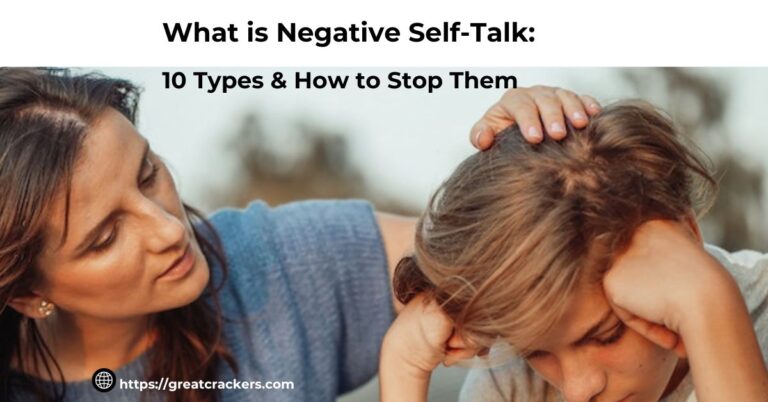5 Practical Importance of Emotional Intelligence in daily life
Did you know emotional intelligence (EI) accounts for over 85% of leadership success?
Or have you heard that people with higher EI have better mental health and are more resilient to stress?
Well, you cannot overstate the importance of emotional intelligence in daily life. It affects your personal and professional relationships, decision-making, and well-being.
According to a study by Talent Smart, people with higher EI earn an average of $29,000 more per year than those with lower EI.
In this blog post, you’ll learn the importance of emotional intelligence in daily life and how it can impact your success and happiness.
Importance of Emotional intelligence in daily life
Chances are that you’ve heard of emotional intelligence (EI) on different occasions.
Well, emotional intelligence is all about understanding and controlling your emotions. But more than that, it involves recognizing and reacting to other people’s feelings.
That said, emotional intelligence is important in daily life as it improves your ability to understand yourself. Also, it helps you manage your own emotions and those of others. And thus, resulting in better relationships, communication, decision-making, self-awareness, and reduced stress.
Here are 5 Practical Importance of emotional intelligence in daily life (Explained)
#1. Better Relationships
You establish stronger relationships with others (in your personal and professional life) by recognizing and empathizing with people’s emotions.
That is because it helps you communicate better and solve conflicts gracefully.
Imagine this practical scenario:
You’re at work, and a colleague makes a mistake that costs the team time and resources.
Of course, your initial response might be to become frustrated and angry. But by applying your emotional intelligence, you take a moment to empathize with your colleague’s feelings.
It could be that they’re most likely embarrassed or overwhelmed by their workload. So, when you appreciate the emotions of others, you can approach the situation with kindness and support rather than hostility.
Well, that’s one example of how emotional intelligence can lead to more positive communication. And, of course, improve conflict resolution and build stronger relationships.
Studies show that individuals with higher EI experience greater job satisfaction and well-being. So, developing your emotional intelligence can create a more harmonious and fulfilling life for you and those around you.
#2. Effective Communication
Of course, we’ve all had moments where we struggled to communicate our feelings and needs well.
It could be you’re disagreeing with your partner. And you’re unsure how to express your frustrations without being confrontational.
While that can be overwhelming, that’s where emotional intelligence comes into play. And by being emotionally intelligent, you can recognize and understand your own emotions.
Plus, you’re able to communicate your needs clearly and concisely. As a result, that leads to fewer misunderstandings and more positive interactions with others.
Based on studies, people with higher EI have better conflict resolution skills and more fulfilling relationships. In other words, you can improve your communication by working on your emotional intelligence. And then build stronger connections with those around you.
#3. Improved Decision-making
Indeed, decision-making is a process that is part of our daily lives. And more often than not, many of us have made a few decisions that we later regretted.
But usually, it is easy making choices based solely on our needs and desires without considering how they might impact others.
Interestingly, at such a point, emotional intelligence becomes very handy. And with emotional intelligence, you can consider your emotions and those of people around you when making decisions.
Real-life Example
For example, if you’re a manager who needs to decide who to promote, you might consider not only your preferences. But you also check the emotions and needs of your team members.
And that may lead to more thoughtful and effective choices in our personal and professional lives. Research has shown that those with higher EI have better decision-making skills and are more successful in their careers.
That’s why cultivating your emotional intelligence is critical. It can help you make better choices beneficial to you and those around you.
#4. Enhanced Self-awareness
Sometimes, your emotions can be overwhelming, and you may lack control over your frustration. Or you may feel unable to think of creative ways to manage your anger.
Well, that’s a common experience for many people. But with a developed emotional intelligence, you can cultivate greater self-awareness and self-control.
Thus when you can grasp and regulate your emotions, you can handle stressful situations and maintain your composure.
A Practical example
For example, you may be feeling anxious before a big presentation. But emotional intelligence enables you to recognize these emotions and manage them. And that could either be deep breathing or positive self-talk.
That way, you achieve greater self-awareness and self-control. And that leads to better decision-making and more positive interactions with others.
No wonder many studies have shown that those with higher EI have better mental health outcomes. On top of that, they are more resilient in the face of adversity. And, of course, live happier and more fulfilling lives.
#5. Reduced Stress
Again, emotional intelligence is all about understanding and managing your emotions well enough.
So when you learn how to manage your emotions effectively, you can reduce stress and improve your well-being.
For instance, when you’re feeling stressed or overwhelmed, emotional intelligence enables you to identify the sources of your stress. After which, it allows you to take steps to manage it. Either through meditation, exercise, or otherwise.
And that makes you maintain a positive outlook and stay focused on your goals. Furthermore, EI allows you to build stronger relationships, communicate better, and make better decisions.
Research shows people with high EI tend to have stronger social support networks and improved mental health outcomes. Besides, they enjoy better job satisfaction.
So by prioritizing emotional intelligence in our daily lives, we can lead more fulfilling and successful lives.
Final Thoughts
As a powerful tool, emotional intelligence can help you thrive in all aspects of your life.
So by learning to manage your emotions well, you equip yourself better to handle challenging situations. And that allows you to maintain positive relationships with the people around you.
You need emotional intelligence whether (you’re) at work, at home, or out in the world. It is an essential life skill. That’s because it helps you stay focused, calm, and empathetic.
Thus, identifying and regulating your emotions can help you build stronger connections with others. And that can help you make more thoughtful decisions and create a more fulfilling life.
That’s why investing in developing your emotional intelligence is the way to go as one looking to enhance your well-being and reach your full potential.







